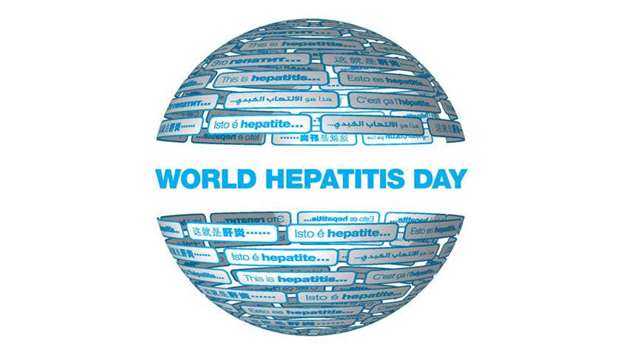Qatar joined the rest of the world in observing the World Hepatitis Day, which falls on July 28 every year.
This year the World Health Organisation (WHO) has adopted the theme: "Test, Treat, Hepatitis".
The World Hepatitis Day provides an opportunity to enhance awareness of the disease and to highlight the achievement of the goals of the first Global Strategy developed by the WHO for the health sector on viral hepatitis for the period 2016-2021. The ultimate goal is to eradicate hepatitis.
The fight against hepatitis is one of the priorities of the health system in Qatar considering the severe complications that result from infection such as cirrhosis, liver failure and liver cancer.
Qatar is pursuing a strategic approach to controlling and eliminating viral hepatitis through joint efforts by the Ministry of Public Health, Hamad Medical Corporation, Primary Health Care Corporation, Qatar Red Crescent, the private sector and many local and international partners, which represents a model for fruitful and continuous co-operation in the field of public health in Qatar and a model to be emulated by other countries.
The Ministry of Public Health, Hamad Medical Corporation, the Primary Health Care Foundation and national partners are carrying out awareness campaigns on the disease and implementing a number of early screening campaigns for hepatitis C.
The latest rapid check-up of liver disease covered more than 7,600 people in primary healthcare centres, and the incidence of the disease was significantly reduced.
The spread of hepatitis C is 0.8% among the entire population and only 0.25% among Qataris.
According to the World Health Organisation, Qatar is classified as a low burden of hepatitis B, with a prevalence rate of less than 2%.
The Ministry of Public Health, in co-operation with the Ministry of Education and Higher Education, carried out a survey of school students to detect hepatitis B. The survey showed no satisfactory cases, reflecting the high coverage of the vaccination programme against the disease in Qatar.
Positive cases are referred to the HMC, where they are treated with the latest and most effective medical drugs for hepatitis C, known as Direct antiviral drugs.
Qatar provides this treatment free of charge to all citizens and residents through HMC's liver diseases department, in co-operation with the Qatar Red Crescent, the private sector and many partners in the country.
More than 4,000 patients have been treated so far in Hamad Medical Centre's liver disease unit and very high recovery rates have been achieved.
The Ministry of Public Health also held a number of national seminars and workshops for medical cadres to raise their competence in identifying and treating the disease in line with the directives of the World Health Organsation which urges decision-makers, medical personnel and community members to identify viral hepatitis and take practical steps to enable early screening and access to appropriate treatment.
The World Health Organisation recommends an early screening of the disease.
Eight out of nine people in the Eastern Mediterranean Region do not know they have hepatitis, and these laboratory tests are available in Qatar to enable citizens and residents to have and take the appropriate available treatment in the country.
A hepatitis B and C test is the only way to know if a person is infected and is the first step to get treatment to prevent liver damage.
The National Working Group on Hepatitis, which includes all the active partners in the fight against the disease in Qatar, has conducted many scientific research in cooperation with prestigious international institutions and has been published in the finest international scientific journals, and has been presented in a number of international conferences.
Qatar was commended at the 2017 World Summit of Hepatitis, where scientific reports indicated that Qatar is among the nine countries in the world on track to eradicate the hepatitis C virus by 2030.

